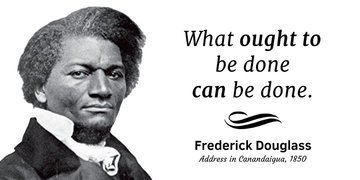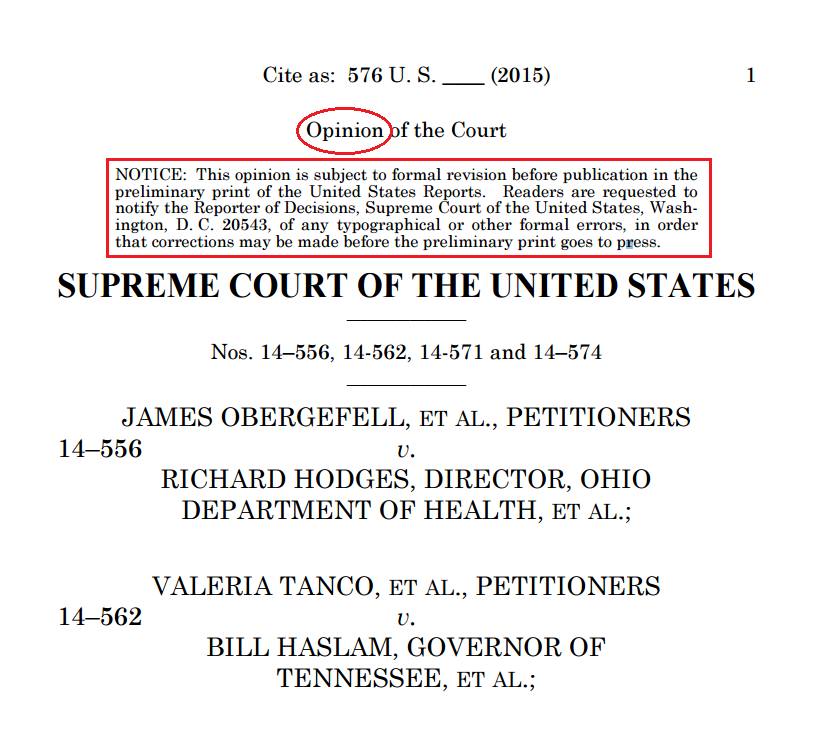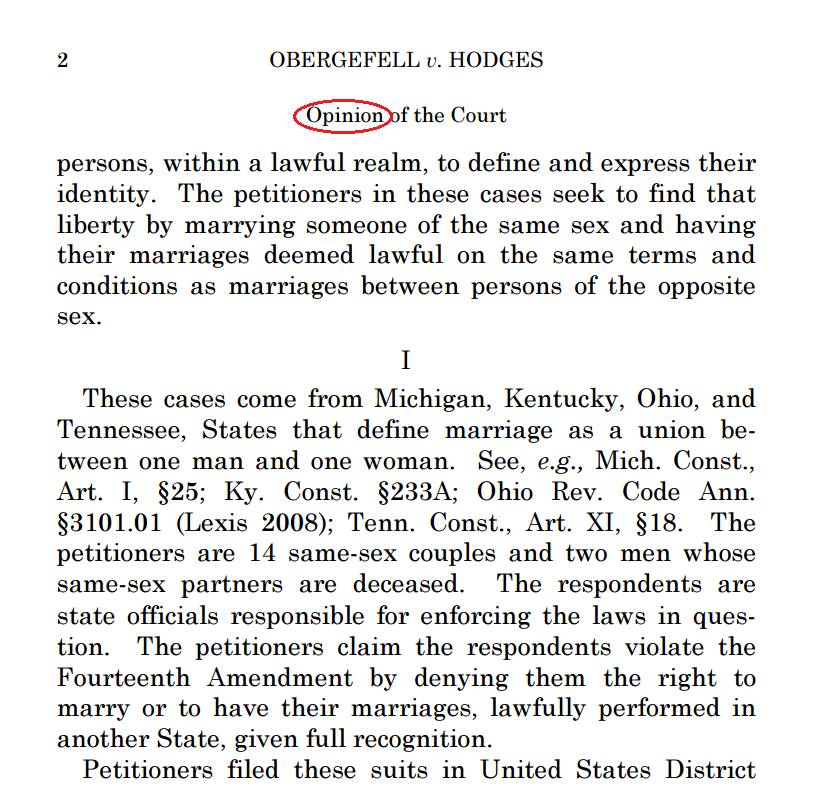
Siena Hoefling
June 7, 2018
News outlets say Iowa has passed “the nation’s strictest legislation,” that “bans most abortions.” One report called it a “total abortion ban.” Iowa’s fetal heartbeat bill, S.F. 359, supposedly prohibits abortions after six weeks. Upon signing the bill, Governor Kim Reynolds said, “I understand and anticipate that this will likely be challenged in court.”
Lawmakers welcomed the legal battle. Some said the law was designed to “take a run at” “overturning” Roe v. Wade.
Three years ago, another heartbeat law from North Dakota met defeat in the 8th Circuit, which covers Iowa. The Supreme Court declined to hear that case.
Supporters of the Iowa law say this time is different, because Antonin Scalia has been replaced by Neil Gorsuch. The junior justice, however, has indicated a respect for abortion precedent. In his U.S. Senate hearing, Gorsuch called Roe v. Wade “the law of the land,” and emphatically asserted its doctrine that “a fetus is not a person.” “That’s the law of the land,” insisted Gorsuch. “I respect the law of the land.”
Legal experts predict the Iowa heartbeat law will die in the courts at the hands of precedent. Since 1992, state-level abortion regulations have been judged by the “undue burden” test that sprang out of the Republican-led Rehnquist court in Planned Parenthood v. Casey. An undue burden, according to Casey, is a “substantial obstacle in the path of a woman seeking an abortion.” Based on that precedent, the Iowa heartbeat law “is likely to be struck down,” says Drake law professor Renee Cramer, because she said it prohibits abortion before most women know they are carrying a child.
But imagine that the Supreme Court hears the case, Gorsuch changes his view of precedent, and the majority sides with the heartbeat law. Is that a victory for life? Are babies now protected? Is Roe “overturned”?
No.
The Iowa heartbeat law does not challenge Roe. It simply replaces one arbitrary standard with another. Even if the courts embrace the heartbeat law, we are no better off — perhaps we’re worse — and the destructive jurisprudence of Roe is left in place.
To be victorious against Roe and all its mischief, the Iowa law would have to go to the heart of the matter, which is not the heartbeat.
Iowa’s S.B. 359, now codified, cheapens life and enables abortion without restraint. Reports of a prohibition on “almost all abortions” are false. The heartbeat law is a mishmash of baseless exceptions and exploitable loopholes that effectively grant abortion to anyone willing to play around with a little paperwork. The whole ordeal can take place privately, without any accountability or consequence.
The rape and incest exceptions enable a woman to kill her child upon a bare, unsubstantiated report to her doctor. No trial, no adjudication is required. No due process is given the child. Authorities need not be involved. The supposed perpetrator can remain anonymous, and get away with the alleged “crime.” All the doctor has to do is say that the woman notified him within forty-five days of a claimed rape, and the baby can be killed up to twenty weeks. (Or later. Who would know?) For “incest,” one-hundred-forty days are granted to the woman to report the alleged incident to the doctor — again, without proof.
This is abortion without restraint. Not only are doctors allowed to fib on the paperwork without consequence, they suffer no penalty for bending the “rules” to commit an abortion on their own terms. (This is true of the Iowa heartbeat bill, even without the exceptions.) Mothers of the dead children are specifically exempt from prosecution — free to destroy their precious offspring and to lie.
But it gets worse. Not only do these loopholes discard the lives of children upon hearsay regarding the status of their fathers, but shockingly, the Iowa heartbeat law adds an exception that echos the first Nazi eugenics program, Aktion T4, which gave physicians godlike power over life and death.
By a provision targeted at killing the disabled, the Iowa code now empowers doctors to identify and then destroy any child in the womb they label “incompatible with life.” Although some outlets claim that this exception is designed to kill off babies who would die anyway, the superfluous exception is a violation of the right to life, by grotesque excuse. The label can be attached arbitrarily, without due process of law, to kill any baby and make the community complicit in euthanasia.
The Nazis called it administering Gnadentod (gracious death) to the incurably sick, whose lives were considered worthless. Technologies for mass-murdering these disabled victims later found implementation on a larger scale in the concentration camps. The T4 program emboldened the Nazis to violate the right to life, sanitize murder, and enable the wider Holocaust by the deadened conscience of a nation.
Similarly to the Iowa heartbeat law, the Germans labeled their “incurable” victims “Lebensunwertes Leben”: “life unworthy of life.”
Strangely, the Iowa law echos the Nazi program in another indefensible way. Now the euthanasia of Iowa babies with “fetal abnormalities,” along with the killing of babies of alleged rape and incest parentage, is codified as “medically necessary.”
Medically necessary? “Necessary” is a dangerous word to toss around in a code book. When the government uses that terminology for killing a child, you know we are walking in territory foreign to human rights.
By defining the lives of some children as “incompatible with life,” and codifying their killings as “medically necessary,” Iowa’s heartbeat law is a closer champion of eugenics than a foe of Roe.
Once Iowa determined to exempt some children from protection, none were safe. It’s an inevitable consequence.
But even supposing a heartbeat law exists without added exceptions, the bare proposition that we shall exclude the smallest babies from protection is an indefensible, man-made exception to the right to life. Detached from claim that we are all endowed with rights by our Creator, and due the equal protection of government in our lives, the “heartbeat” concept is intrinsically immoral.
The smallest human life must be protected because to do otherwise is an offense to God. “Thou shalt not kill,” said the Lord. For killing the “least of these,” we do it unto Him. (Matthew 25:32–46)
A heartbeat law, in any iteration, sanctions killing the “least.” When the “least” is your own offspring as a nation, and you have no heart for them, your land deserves the curses that come. (Malachi 4:6)
Even before the Iowa bill was amended with new exceptions, its arbitrary standard, like Roe, treated the smallest children as non-human beings, unworthy of equal protection and due process. The right to life was discarded for a doctor’s perception of “repetitive” and “rhythmic” contractions of the heart. Excluded, for no reason, are those children whose heartbeats aren’t detected — or, more accurately, weren’t “repetitive” or “rhythmic” enough to suit the abortion doctor, whose own heart is hardened against the womb-bound child.
Contrary to the hope that this is a worthy counter to Roe, the heartbeat standard is its regurgitation, lapped up again. (Proverbs 26:11) Rather than assert the right to life of every child, the heartbeat standard accepts the core error of Roe: that unborn persons are not due equal protection of the laws.
American government owes its existence to the unassailable truth that “all men are created equal, that they are endowed by their Creator with certain unalienable rights,” including the right to life. “To secure these rights,” equally among the weak and strong, the disabled and able-bodied, the young and old, “Governments are instituted among men.” Although our nation ignored the requirements of that universal principle in its tolerance and practice of slavery, over time the demands of justice prevailed. We ceased our infidelity, and renewed our vows to the Declaration of Independence.
Like the American slave system of bygone days, Roe v. Wade trampled underfoot the eternal, moral law of human equality. Rather than change course, the heartbeat standard follows Roe’s deadly footsteps, and treats the right to life as an uncertain right, to be bestowed by the whims of men. Substituted for equality is the counterfeit design of tyrants who treat human beings as unequal subjects, unendowed by God with fixed rights that are the only guard against an ever-shifting, capricious government.
In its invention of a trimester system that pretends to know which children shall live and which shall die, Roe presents an iniquitous favoritism. The heartbeat standard likewise assumes the lie that the right to life is variable and man-made — as if government can protect life for some and not others — and joins Roe in treating the unborn child as unequal to ourselves.
Beyond logic, many opponents of Roe claim to believe in the Declaration of Independence while they violate its precepts in such legislation as the Iowa heartbeat law. They claim to “save some,” by offering laws that explicitly and implicitly exclude others. But making a detectable heartbeat determinative of the right to life only joins Roe in creating a tool of arbitrary oppression. By discarding the smallest babies, heartbeat laws grant permission for their deaths. Even if the hidden intent was to de facto “ban” abortion without providing full protection, as some headlines supposed of the Iowa law, the abandonment of equality is not worth the price of clever obliqueness.
As soon as you abandon equality under the law, and you grant governmental permission to murder some of the babies, you have removed the basis for protecting any. Before you know it, those you aimed to protect are exposed to harm, because rights bestowed by government today are gone tomorrow.
Regulationists of abortion, who wish to “chip away” at Roe v. Wade rather than immediately apply the justice described in the Declaration, say that they have no choice but to compromise. Yet “compromise” suggests a gain for both sides.
But nothing is gained by the “pro-life” side when it crafts statutes that dehumanize the child, promote inequality, deny the God-given rights that our Declaration calls certain, embolden doctors to commit atrocities, and grant permission in our statutes to kill babies — as does the Iowa heartbeat law.
Due to its lack of restraint on human behavior, the Iowa heartbeat law does nothing but cover for abortion. At worst, it might be called a toothless fraud, or at best, an act of timidity.
To its sincere advocates, we might ask the scriptural question: shall we “do evil, that good may come?” Can injustice fight injustice? We should recall that the scripture commands, “Be not overcome of evil, but overcome evil with good.” (Romans 12:21)
And, “Depart from evil and do good.” (Psalm 34:14)
And, “Be ye doers of the word, and not hearers only.” (James 1:22)
The great abolitionist Frederick Douglass said that one of the greatest obstacles to ending slavery was the “heresy” that “slavery will be abolished just when the Lord shall will its abolition.” That complacent attitude delayed slavery’s end and needlessly extended the suffering. “It is a delusion and a snare, to think that Almighty God will undertake for us any farther than we undertake for ourselves. His work is done: ours alone remains to be done,” wrote Douglass to The Liberator.
“When a slave, I used to pray that the Lord would give me freedom,” he recollected. “And I might have prayed in slavery until this time, had I not ‘prayed with my heels.’”
He added, “Our works must be consistent with our prayers, otherwise they are an abomination before God.” Douglass recalled this was an epiphany that led him out of bondage.
Frederick Douglass spoke of the delayed abolition of slavery in the West Indies. Everyone, even the noble-hearted William Wilberforce, thought immediate emancipation was impractical or undesirable. Douglass spoke of the principled change that enabled freedom:
"Gradual emancipation was the most ultra idea then broached; and though tame, insipid, and stale, it was at the first a terrible note to the slaveholder, as well as their abettors. It, however, lost its power to stir the souls of its friends, or disturb the fears of its foes. The cause languished. Everybody was in favour of gradual abolition, but no one was ready for action now. After twenty years of toil to promote gradual abolition, — the cause dragging heavily along — while those noble men were hesitating about what they should do to infuse spirit into the Anti-Slavery ranks, and to accomplish their noble purpose, a woman, with the head of a prophetess, and the heart of an angel, came to instruct and strengthen their faltering ranks. She taught that what is right, is reasonable; and that what ought to be done, can be done, and that immediate emancipation was the right of the slave, and the duty of the master. Her heavenly counsel was heeded. Wilberforce was converted. The agitation now went on with vigour. They organized committees, appointed agents, and sent forth lecturers into all parts of the country. They printed tracts, and circulated their views through the press in various ways, till they succeeded in impressing the public mind favourably to their objects, and created that tide of public opinion which demanded immediate and unconditional freedom to the West Indian slave." (Douglass, 1850 speech on West India emancipation)
“What ought to be done, can be done,” was the rallying cry that, according to Frederick Douglass, freed the British slave. Faith in righteous action — not half-way, toothless measures — has the power to stir souls against atrocity.
After nearly fifty years of American toleration of abortion, it is time to abandon the insipid, compromised delays of failed “pro-life” strategies. As with the original abolitionists, we must awaken to the right of the child to be protected, and the immediate duty of government to provide equal protection.
Frederick Douglass urged the American people to never let go of the principles that end injustice:
"I have said that the Declaration of Independence is the ring-bolt to the chain of your nation’s destiny; so, indeed, I regard it. The principles contained in that instrument are saving principles. Stand by those principles, be true to them on all occasions, in all places, against all foes, and at whatever cost." (“What to the Slave is the Fourth of July?”, 1852)
A return to the saving principles of the Declaration — and nothing less — will bring about a swift end to the slaughter of our nation’s children.
After decades of diversion, American abortion has not ended — not because that prospect is impossible, but because the Declaration was abandoned by its friends, and the proper, constitutional means have sat on parchment, collecting dust.
Frederick Douglass argued the Constitution was sufficient to end slavery, even before the passage of the Thirteenth and Fourteenth Amendments. The basis for that insight was that the Constitution can only be judged by its written text (which was anti-slavery, he said), and by its stated intentions — the interpretive text we call the preamble:
"We the people of the United States, in order to form a more perfect union, establish justice, insure domestic tranquility, provide for the common defence, promote the general welfare, and secure the blessings of liberty to ourselves and our posterity, do ordain and establish this constitution for the United States of America."
“Interpreted as it ought to be interpreted,” said Douglass, “the Constitution is a GLORIOUS LIBERTY DOCUMENT. Read its preamble, consider its purposes. Is slavery among them?”
Or, is abortion among them? No. A constitution intended to establish justice, insure domestic tranquility, provide for the common defense, all in united fashion for ourselves and our posterity, has no baby-killing agenda.
At the outset, the Constitution explicitly states it is written for posterity: our nation’s children. Every clause expresses that warm affection. The founders knew that fully establishing justice was a future gift to be enjoyed by future generations — if the previous generations would stay the course.
But if the Constitution was intended to destroy posterity, to spill the blood of tiny babies, to forfeit the life of the most vulnerable child, to make Americans into selfish brutes who curse and kill their children, the document would have left no doubt.
“Be it remembered that the Constitution nowhere forbids a colored man to vote,” said Douglass in 1860. Likewise, be it remembered that the Constitution nowhere forbids a child to live.
Interpreted as it ought to be interpreted, the Constitution is a glorious life-protecting document. Our error today is that we have mistaken the opinions of judges for law.
Frederick Douglass contrasted the American form of government with that of Great Britain, which relies on court precedent (case law) to settle modern problems by old conventions. The British system has no written constitution, so its precedent is law. The United States, on the other hand, has a written Constitution that binds all of government to its purposes, and cedes no lawmaking power to the courts:
"What, then, is the Constitution? I will tell you. It has no vague, indefinite, floating, unsubstantial, ideal something, colored according to any man’s fancy, now a weasel, now a whale, and now nothing. On the contrary, it is a plainly-written document, not in Hebrew or Greek, but in English, beginning with a preamble, filled out with articles, sections, provisions, and clauses, defining the rights, powers, and duties to be secured, claimed, and exercised under its authority. It is not even like the British Constitution, which is made up of enactments of Parliament, decisions of courts, and the established usages of the government. The American Constitution is a written instrument full and complete in itself. No court in America, no congress, no president, can add a single word thereto, or take a single word therefrom. It is a great national enactment done by the people, and can only be altered, amended, or added to by the people." (Douglass, 1860 debate in Scotland)
“I repeat,” said Douglass, “the paper itself, and only the paper itself, with its own plainly-written purposes, is the Constitution.”
Neil Gorsuch was right to pledge respect for “the law of the land.” But he forgot to read his Constitution. “The law of the land” that Gorsuch swore to uphold is not Supreme Court rulings or precedent.
Gorsuch swore allegiance to that Constitution, and to the impartial administration of justice. Articles I and II make clear that courts are not empowered with the ability to create law, or to apply “case law.” (As in Great Britain.) No oath imposes allegiance to Roe v. Wade nor does the Constitution allow court precedent to be treated as “the law of the land.” The U.S. Constitution has that supreme title, and it does not countenance the taking of innocent human life, only its protection.
Above other governments in recorded history, our government was dedicated to the loftiest and purest of purposes. Ours was made to defend the defenseless, and to secure a blessed land for our children. Ours was not designed to create a nation of baby-killing barbarians. Ours was not designed to make us captives of courts. Unlike every nation that came before, our government belongs in our hands, with a written constitution that justly secures the God-given rights of all.
What can be done about Roe v. Wade? Elect officials who will ignore it, check and balance the judiciary, uphold their oath to the Constitution, enforce equal protection for posterity, and stop making laws that conform to Roe’s deadly standard.
If not to protect the weakest among us, why have a government?






 RSS Feed
RSS Feed
